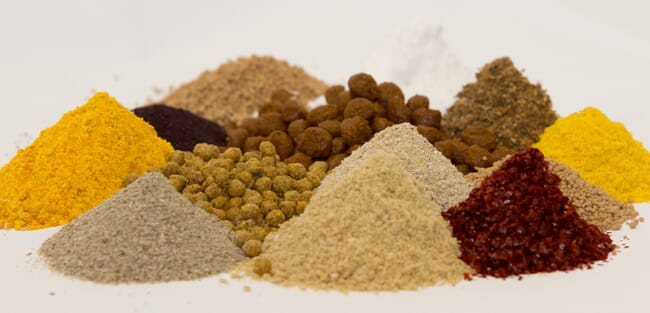The event ran under the title "Aquafeeds: Fit for Future" and was the third time the series addressed Asia’s aquafeed sector.
Featuring 16 presentations under five distinct plenary sessions, TARS 2019 covered industry updates, from aquaculture nutrition for shrimp, freshwater fish, and marine fish to nutritional requirements (new protein meals and oils to replace fish meal/oil), functional feeds, precision feed management practices, as well as growing the aquafeed business in Asia.

© TCFAT
In his opening address Mimid Abdul Hamid, director of feed and drugs at Indonesia’s Directorate General of Aquaculture, Ministry of Marine Affairs and Fisheries (MMAF), emphasised the value of partnerships and support needed from feed producers towards developing efficient and eco-friendly feeds to sustain the continued growth of Indonesia’s aquaculture.
At the state-of-industry session, Haris Muhtadi (Indonesia), Ravikumar Bangarusamy (India), Jarin Sawanboonchun (Thailand), and Marc Campet (Vietnam) reported on the unique and shared challenges in their respective countries. The shared concerns across these countries were culture-specific feed needs, over capacity, raw materials alternatives to replace fish meal and fish oil, new formulations to overcome disease challenges, and lower feed prices to match lower ex-farm prices for fish and shrimp. The future of Asia’s aquafeed sector requires close collaboration within the industry, academia and government.
There was also a session called “Hard Talk with C-suite Executives” with Henrik Aarestrup, BioMar Group, Denmark; Palanisamy Ravi, The Waterbase Limited, India; and Christopher Co, Oversea Feeds Corporation, Philippines. They provided interesting insights into their business models for success and strategies to meet local demands within the current competitive aquafeed landscape. From the farmer’s perspective, Rizky Darmawan gave his wishlist on feeds to achieve the key performance indicators at his shrimp farm in Sumbawa. Troy Keast shared his views on the feed supply chain and operational experiences at his integrated Asian seabass farm in Bali, Indonesia.
The three breakout roundtable and panel report sessions on shrimp, freshwater fish and marine fish feeds ended the two-day meeting on a high note, with enthusiastic discussions among delegates on current issues, areas for improvement, and solutions to take Asia’s aquafeed industry forward.
Organised by Aqua Culture Asia Pacific and Corporate Media Services PL, TARS 2019 was supported by Indonesia’s Directorate General for Aquaculture, Ministry of Marine Affairs and Fisheries. Sponsors included INVE Aquaculture & Benchmark Holdings, DSM, Corbion, Biomin, BASF, Adisseo, BioMar, Calysta, Jefo Nutrition, Veramaris, Phibro Aqua and Skretting.
TARS 2020, which will focus on shrimp aquaculture, will be held August 19-20, 2020.

